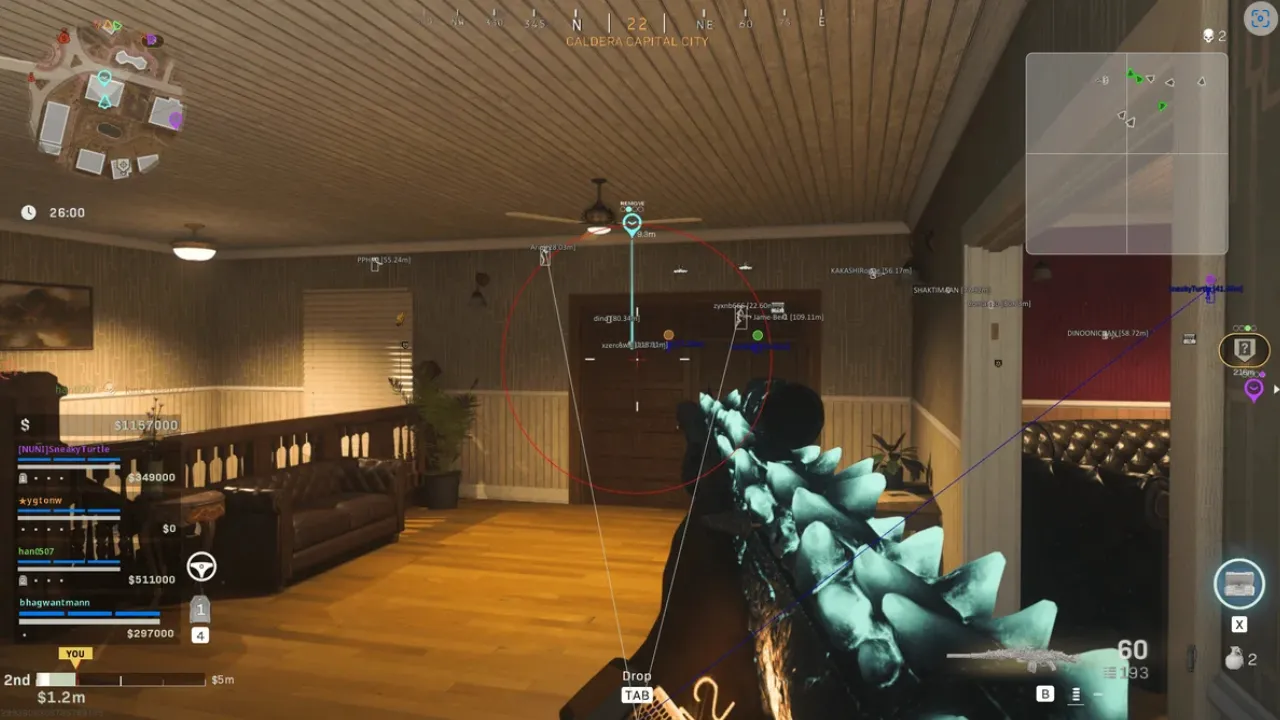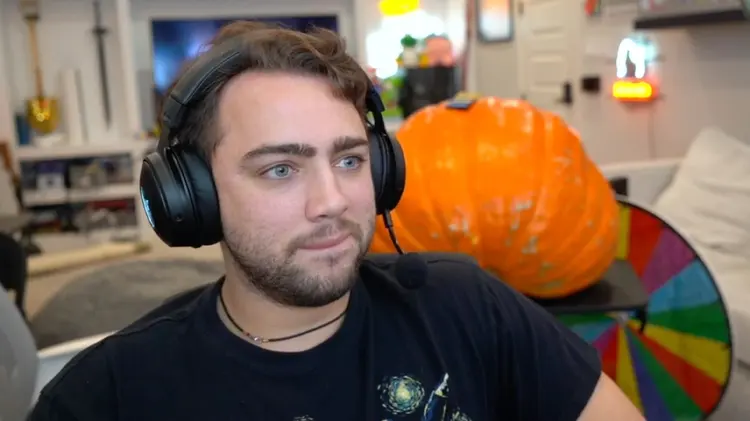Cheaters suck, let’s face it. The rising popularity of streaming has revolutionized the gaming industry, providing a new dimension to how games are played, shared, and enjoyed. With platforms like Twitch, YouTube Gaming, and Mixer (prior to its closure), streaming has become a global phenomenon, shaping the way people experience and interact with video games.
Table of Contents
Introduction
While streaming has brought a myriad of positive experiences to the gaming community, it is not without its controversies. One pressing issue that has garnered significant attention is the prevalence of cheating by streamers in popular games like Call of Duty.
Cheating practices in online multiplayer games refer to actions taken by players to gain unfair advantages over their opponents. These practices violate the rules and spirit of fair play, compromising the integrity of the game. Here is a brief explanation of common cheating practices seen in online multiplayer games:
- Aimbot: Aimbot is a cheat that provides players with enhanced aiming abilities. It automatically locks onto opponents, allowing the cheater to consistently hit shots with pinpoint accuracy. This grants an unfair advantage by eliminating the need for manual aiming skill.
- Wallhacks: Wallhacks enable players to see through walls, objects, or other obstacles in the game. This cheat allows cheaters to spot enemies or important items that would otherwise be hidden, giving them an unfair level of awareness and an edge in combat situations.
- Speedhacks: Speedhacks modify the player’s movement speed, enabling them to move faster than normal. This cheat allows cheaters to traverse the game world rapidly, making it difficult for opponents to track or engage with them effectively.
- ESP (Extra Sensory Perception): ESP cheats provide players with additional information not available to others. This can include displaying the locations of other players, their health levels, and even the positions of valuable in-game resources. ESP cheats grant an unfair advantage by revealing critical information that should be obtained through regular gameplay.
- Exploits: Exploits involve taking advantage of glitches, bugs, or loopholes within the game’s mechanics to gain an unfair advantage. These can include unintended ways of reaching inaccessible areas, duplicating valuable items, or bypassing intended limitations, giving cheaters an unfair boost in power or resources.
- DDoS Attacks: Distributed Denial of Service (DDoS) attacks are malicious actions where cheaters intentionally overload the game’s servers or disrupt the internet connection of opponents. This prevents others from playing or adversely affects their gameplay experience.
It’s important to note that cheating practices are not limited to these examples and can vary depending on the specific game and its mechanics. Game developers and communities strive to combat cheating by implementing robust anti-cheat systems and policies to maintain fair and balanced gameplay for all players.
The Problem of Cheating Streamers
The problem of cheating streamers has become a pressing concern within the gaming community. Streamers, who are influential figures with large audiences, engaging in cheating practices not only compromise the integrity of the game but also have a negative impact on the overall gaming experience.
Cheating streamers gain an unfair advantage over other players by using cheats, hacks, or exploits. This creates an imbalanced playing field where their opponents, who are typically honest players, face insurmountable odds. The cheating streamer’s success is no longer a result of skill and dedication, but rather a manipulation of the game mechanics.
High-profile streamers hold considerable influence within the gaming community. Their actions and behaviors set an example for their viewers, particularly impressionable fans who may look up to them. When these streamers engage in cheating, it sends a troubling message that cheating is acceptable or even commendable. This normalization of cheating can perpetuate a toxic gaming culture.
The presence of cheating streamers damages the sense of community within the gaming world. Honest players may feel demoralized, frustrated, and disheartened when competing against cheaters. The lack of fair play erodes trust and tarnishes the reputation of the game itself, driving away players who seek a genuine and enjoyable experience.
Cheating streamers participating in competitive gaming tournaments or events undermines the integrity of those competitions. It devalues the efforts of genuine competitors and compromises the legitimacy of the results. This not only hurts the reputation of the streamer but also impacts the credibility and prestige of the esports scene.
A significant complaint within the gaming community is the perceived lack of punishment or consequences for cheating streamers, especially when they are high-profile figures. This perception fuels resentment among players who feel that there is a double standard at play, where streamers receive preferential treatment compared to regular players. It raises questions about the fairness and transparency of the actions taken by game developers and streaming platforms.
The presence of cheating streamers often sparks strong backlash from the gaming community. Players voice their frustrations through forums, social media, and online discussions, demanding that appropriate measures be taken against the cheaters. The community’s response highlights the importance of maintaining fair and honest gameplay experiences.
Influence and Accountability
Influence and accountability are key factors when addressing the issue of cheating streamers. As influential figures within the gaming community, streamers have the power to shape opinions, set trends, and impact the behavior of their viewers. It is essential to recognize the influence they wield and hold them accountable for their actions.
High-profile streamers command large audiences and hold significant sway over their viewers’ opinions and actions. Their charismatic personalities, entertaining content, and skillful gameplay attract followers who look up to them as role models. With this influence, streamers have the ability to shape gaming trends, promote certain behaviors, and even influence purchasing decisions.
Streamers have a responsibility to set a positive example for their viewers. Their actions, both in-game and out of it, can have a profound impact on the gaming community. When streamers engage in cheating practices, it sends a message that cheating is acceptable or even admirable. This normalization of cheating undermines fair play and compromises the integrity of the game.
Viewers often emulate the behavior and playstyle of their favorite streamers. If a streamer cheats, their viewers may be tempted to follow suit, believing that it is a valid approach to succeed in the game. This perpetuates a culture of cheating and erodes the principles of fair play. Streamers should recognize the impact they have on their viewers and make responsible choices that promote ethical gaming practices.
Holding streamers accountable for their actions is crucial. Game developers and streaming platforms should enforce strict policies against cheating, ensuring that streamers face appropriate consequences when caught engaging in cheating practices. These consequences can range from temporary suspensions or bans from streaming platforms to the permanent removal of privileges and partnerships.
To maintain the trust of the gaming community, it is important for game developers and streaming platforms to be transparent in their actions against cheating streamers. They should communicate clearly about the measures taken, demonstrating that no one, regardless of their popularity or influence, is exempt from the consequences of cheating. Consistent and fair enforcement of anti-cheat policies helps to establish a level playing field and rebuild trust within the community.
Streamers have an opportunity to be positive role models within the gaming community. By promoting fair play, sportsmanship, and ethical behavior, they can inspire their viewers to approach gaming with integrity and respect for others. Streamers who prioritize fair play and openly condemn cheating can help shape a healthier gaming culture.
Inadequate Punishment and Perception
The issue of inadequate punishment and the resulting perception surrounding cheating streamers is a significant concern within the gaming community. When high-profile streamers are involved in cheating but face minimal consequences or perceived leniency from game developers and streaming platforms, it fuels frustration and undermines trust.
Lack of Consequences: In some instances, cheating streamers may receive lighter punishments compared to regular players who engage in similar cheating practices. This perceived leniency can lead to a sense of injustice and inequality within the gaming community. When streamers receive milder penalties or seemingly escape punishment altogether, it creates a perception of preferential treatment or favoritism.
Impact on Fairness: The perception of inadequate punishment erodes the sense of fairness in the gaming ecosystem. When cheating streamers are not held accountable for their actions, honest players may feel disillusioned and discouraged from participating in fair play. This can lead to a decline in player engagement and a negative impact on the overall gaming experience.
Damage to Reputation: Inadequate punishment for cheating streamers can tarnish the reputation of both the streamer and the game itself. The perception that cheating is tolerated or overlooked undermines the integrity of the gaming community. It raises questions about the commitment of game developers and streaming platforms to maintain a fair and level playing field for all players.
Community Outcry: The gaming community often reacts strongly to instances of inadequate punishment for cheating streamers. Players voice their discontent through social media, forums, and other channels, expressing their frustration and demanding fairness. This outcry reflects the community’s expectation for transparent and consistent enforcement of rules and consequences, irrespective of a player’s status or influence.
Trust and Credibility: The perception of inadequate punishment erodes trust in game developers and streaming platforms. It raises concerns about the effectiveness of anti-cheat measures and the commitment to fair play. When players lose confidence in the system’s ability to address cheating, it undermines the credibility of the gaming industry as a whole.
Importance of Transparency: To combat the perception of inadequate punishment, transparency is crucial. Game developers and streaming platforms need to communicate clearly and openly about the actions taken against cheating streamers. By providing explanations and demonstrating a commitment to fair play, they can help rebuild trust and alleviate concerns within the community.
Impact on the Gaming Community
The rampant cheating by streamers in games like Call of Duty has a significant impact on the gaming community as a whole. It creates a negative environment and undermines the integrity and enjoyment of the gaming experience.
Erosion of Trust: Cheating by streamers erodes the trust within the gaming community. Honest players expect a fair and level playing field, and when influential figures engage in cheating practices, it breaks that trust. Players may become skeptical about the authenticity of others’ achievements and question the legitimacy of competitive gameplay.
Frustration and Disillusionment: The presence of cheating streamers can cause frustration and disillusionment among honest players. Their efforts to improve and compete are overshadowed by those who gain unfair advantages through cheating. This can lead to a decline in motivation and enjoyment of the game, as players may feel that their efforts are futile against cheaters.
Toxic Gaming Culture: Cheating streamers contribute to the development of toxic gaming culture. When cheating is normalized or even celebrated by influential figures, it sets a poor example for the wider community. This can lead to a proliferation of cheating practices among other players, creating a hostile and unfair gaming environment.
Damage to Community Reputation: The presence of cheating streamers can damage the reputation of the gaming community as a whole. It reinforces negative stereotypes and perceptions that gaming is an environment where cheating is rampant and tolerated. This can discourage new players from joining the community and contribute to a negative public image of gaming.
Impaired Competitive Integrity: Competitive gaming relies on fair play and integrity. Cheating streamers compromise the integrity of competitive gameplay by gaining unfair advantages. This undermines the efforts of genuine competitors and creates an imbalanced and distorted competitive landscape. It can discourage players from participating in competitive events and diminish the prestige of esports.
Diminished Player Engagement: The presence of cheating streamers can lead to diminished player engagement. When players encounter cheaters, it creates frustration and a sense of unfairness. This can result in players disengaging from the game or seeking alternative gaming experiences where cheating is less prevalent. Diminished player engagement can have negative consequences for the longevity and success of the game.
Finding Solutions
Finding effective solutions to address the issue of cheating by streamers in games like Call of Duty is essential for maintaining a fair and enjoyable gaming experience. Anti-cheat does exist and does a decent job. However, these shitbags who keep coming back to cheat have 0 consequences. This is where legal action against cheaters should take place. Look at Epic games, they sue cheaters on some occasions. If this tactic was used more, it would probably deter a lot of these little assholes.
Unfortunately, when it comes to high-profile streamers, not much happens to them. They bring in money for the developers and publishers. Will this change? Who knows, I hope it does, so time will tell.






